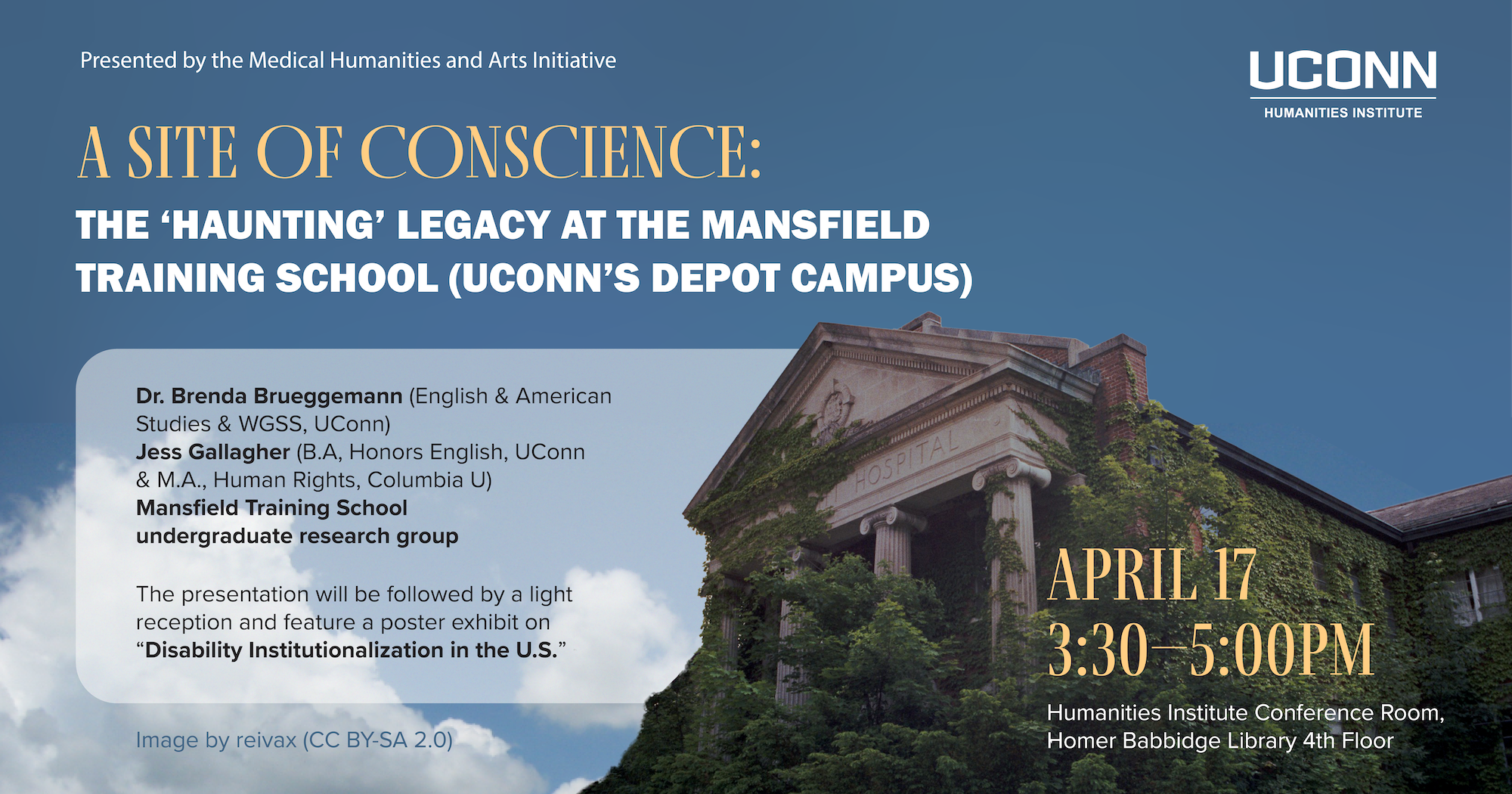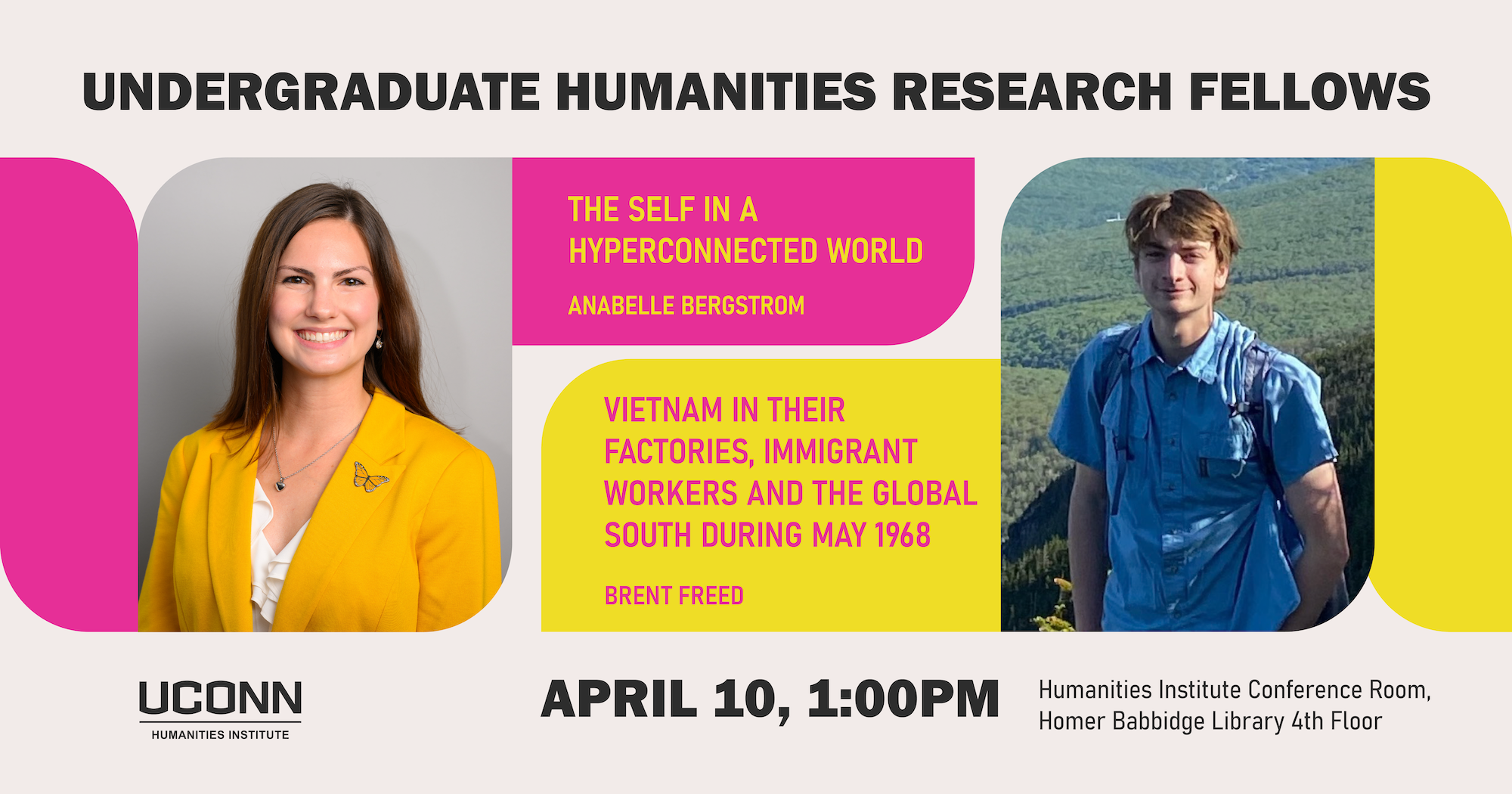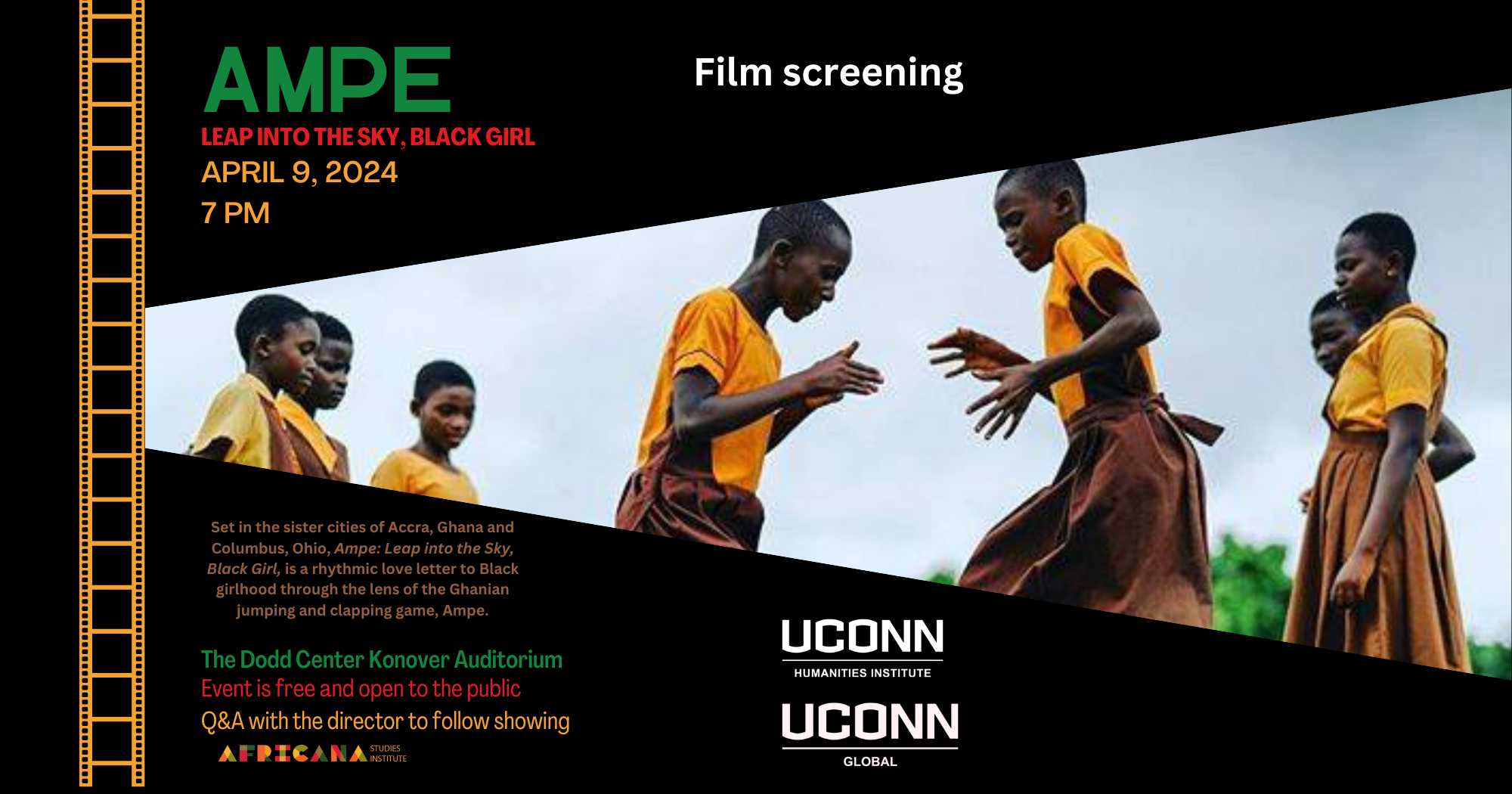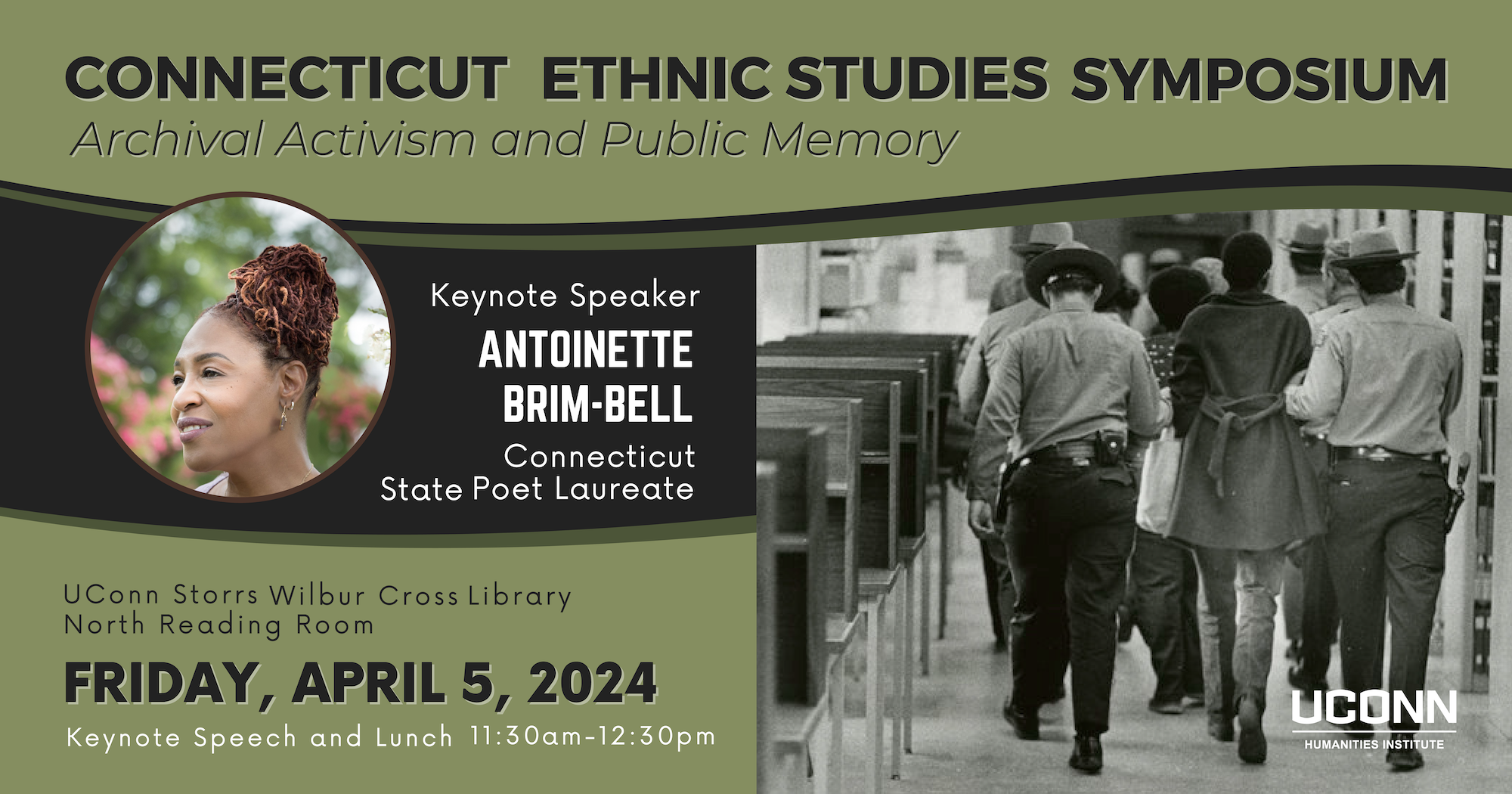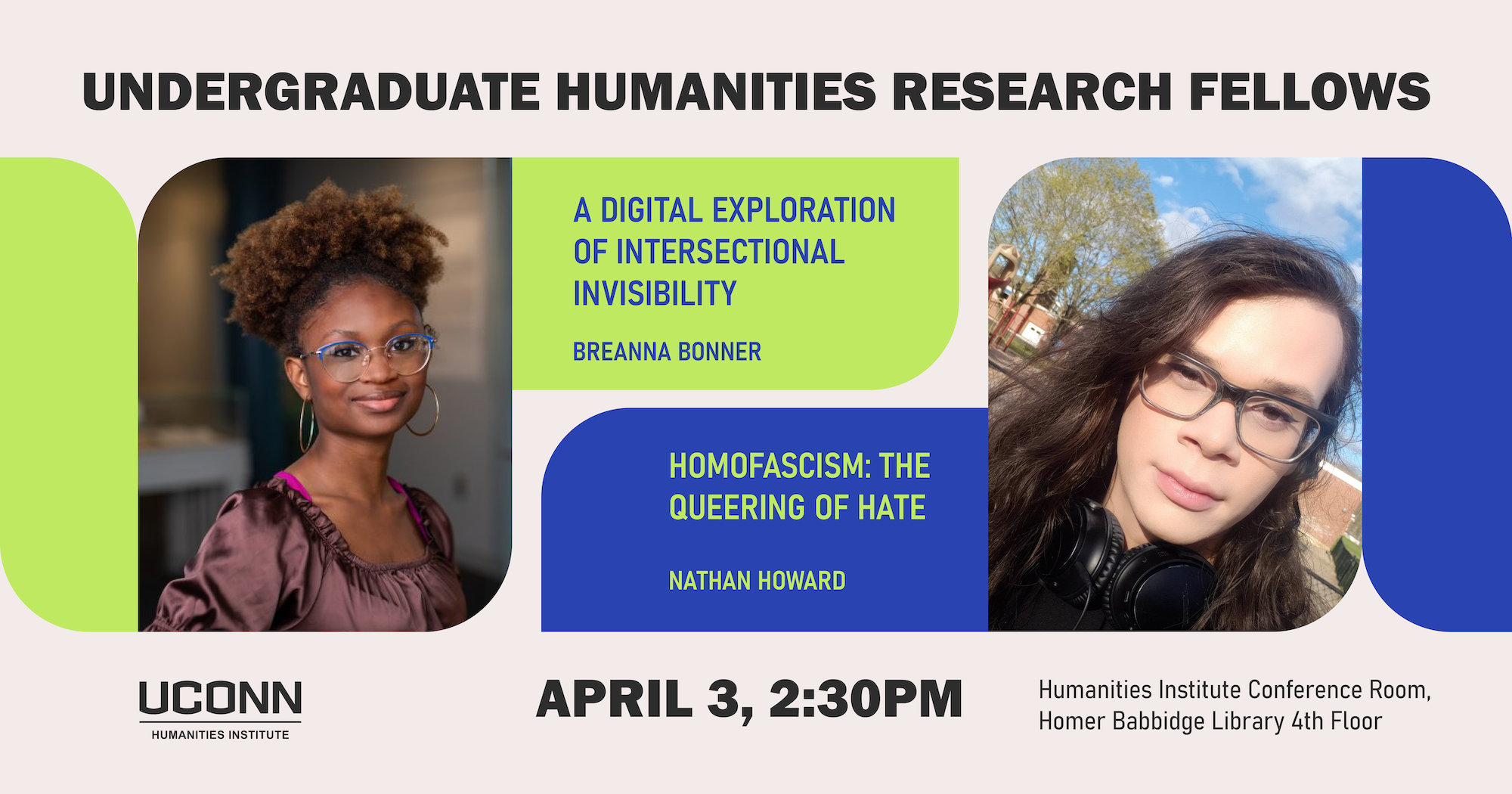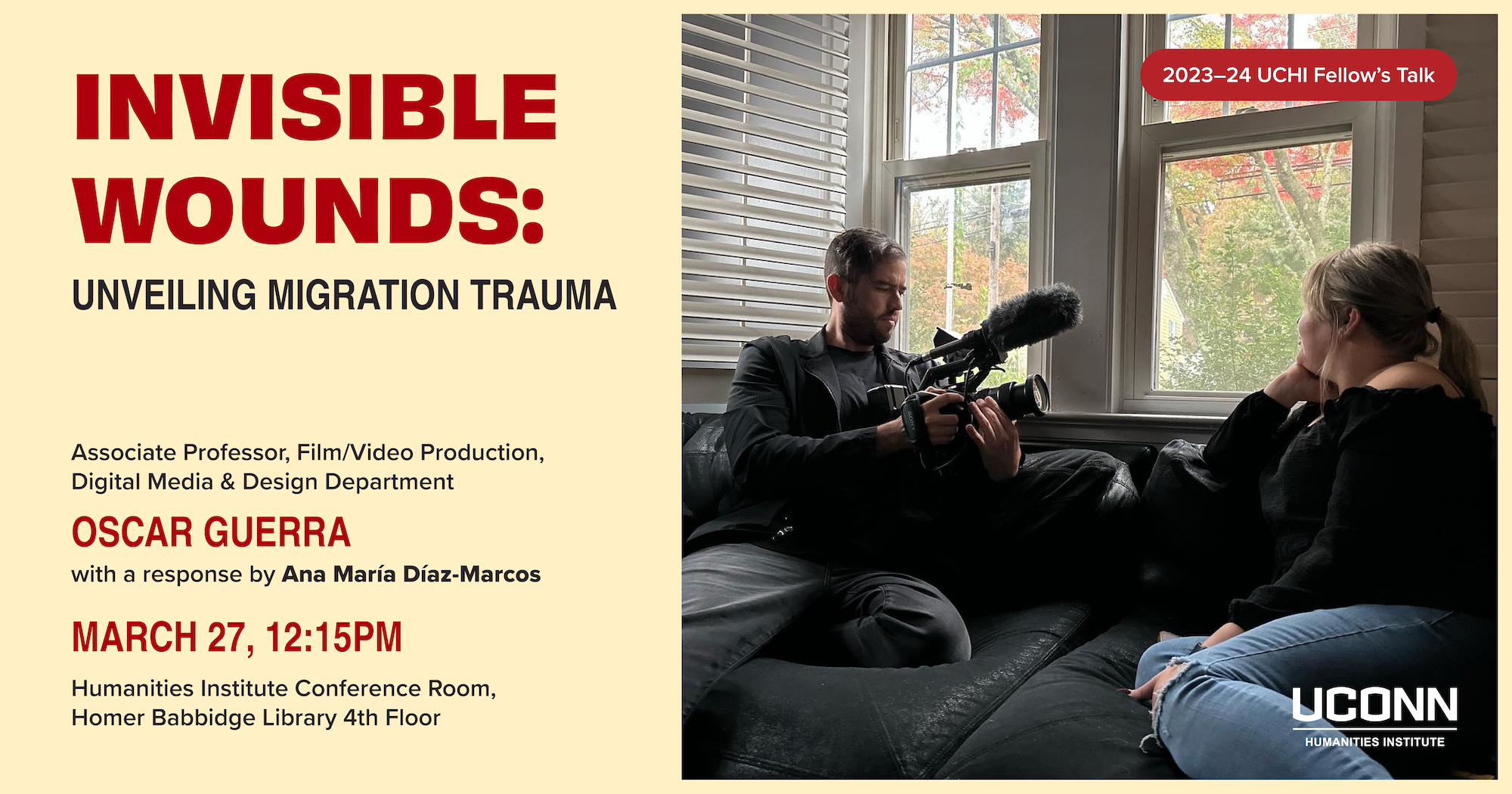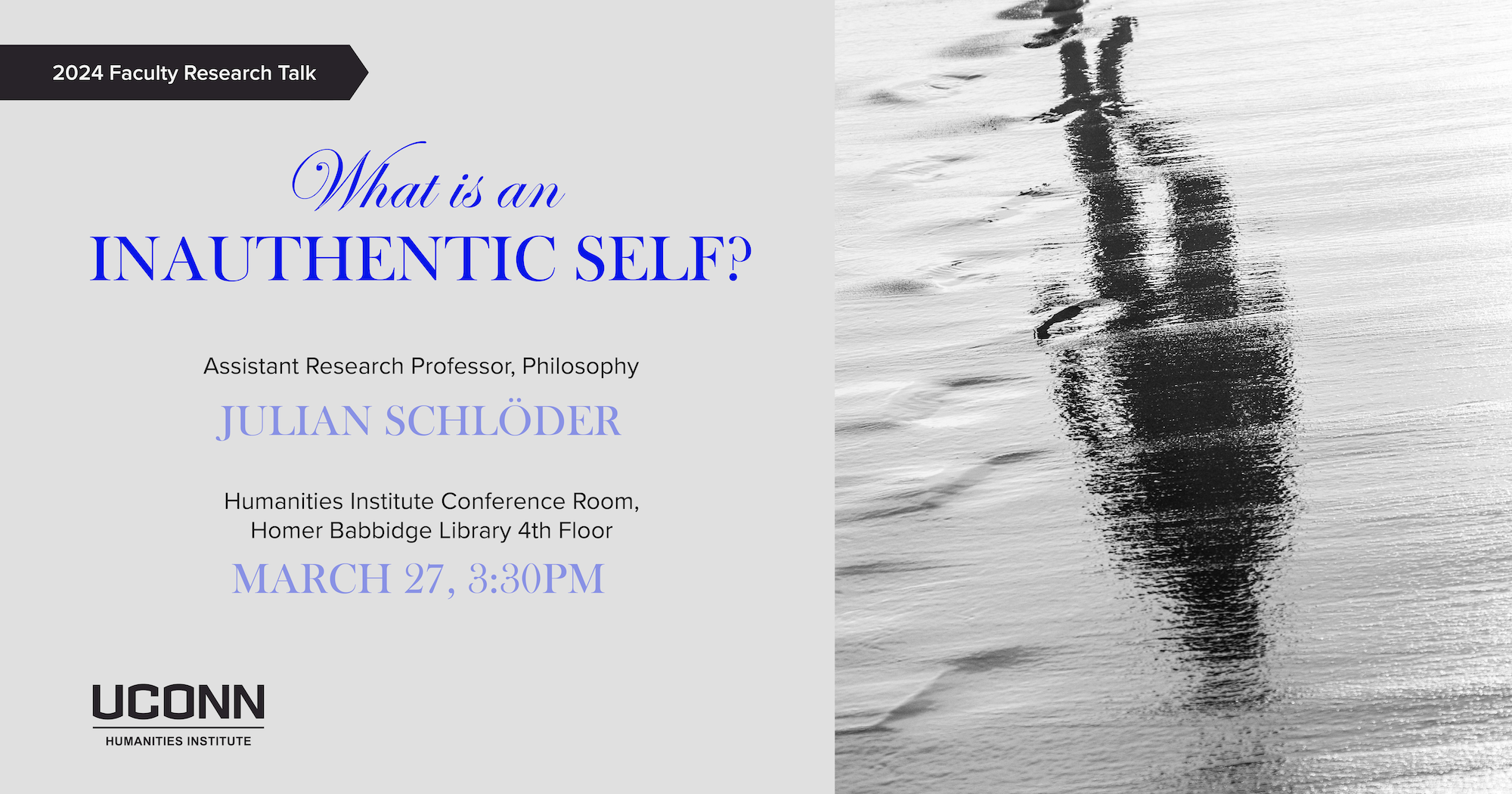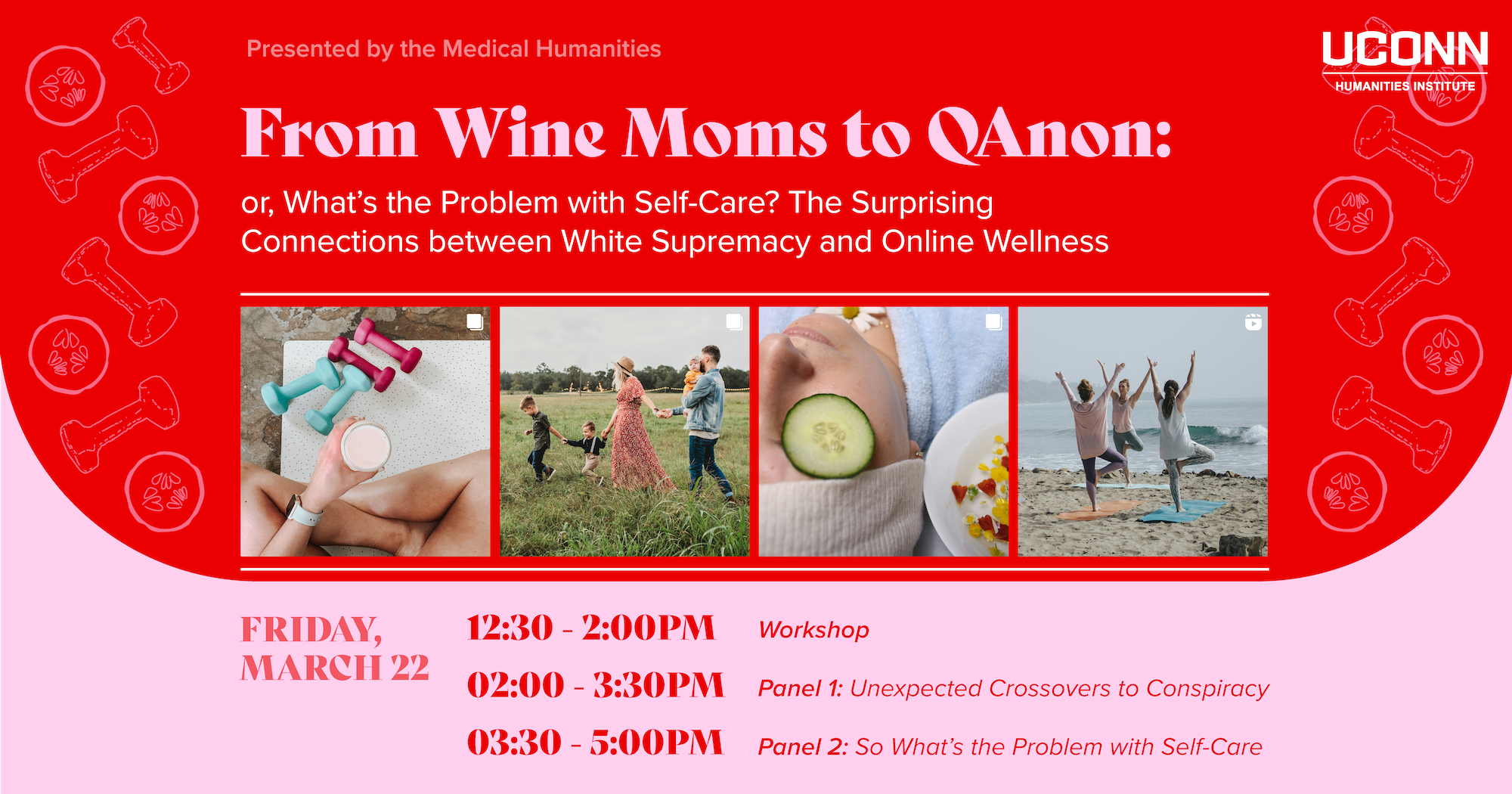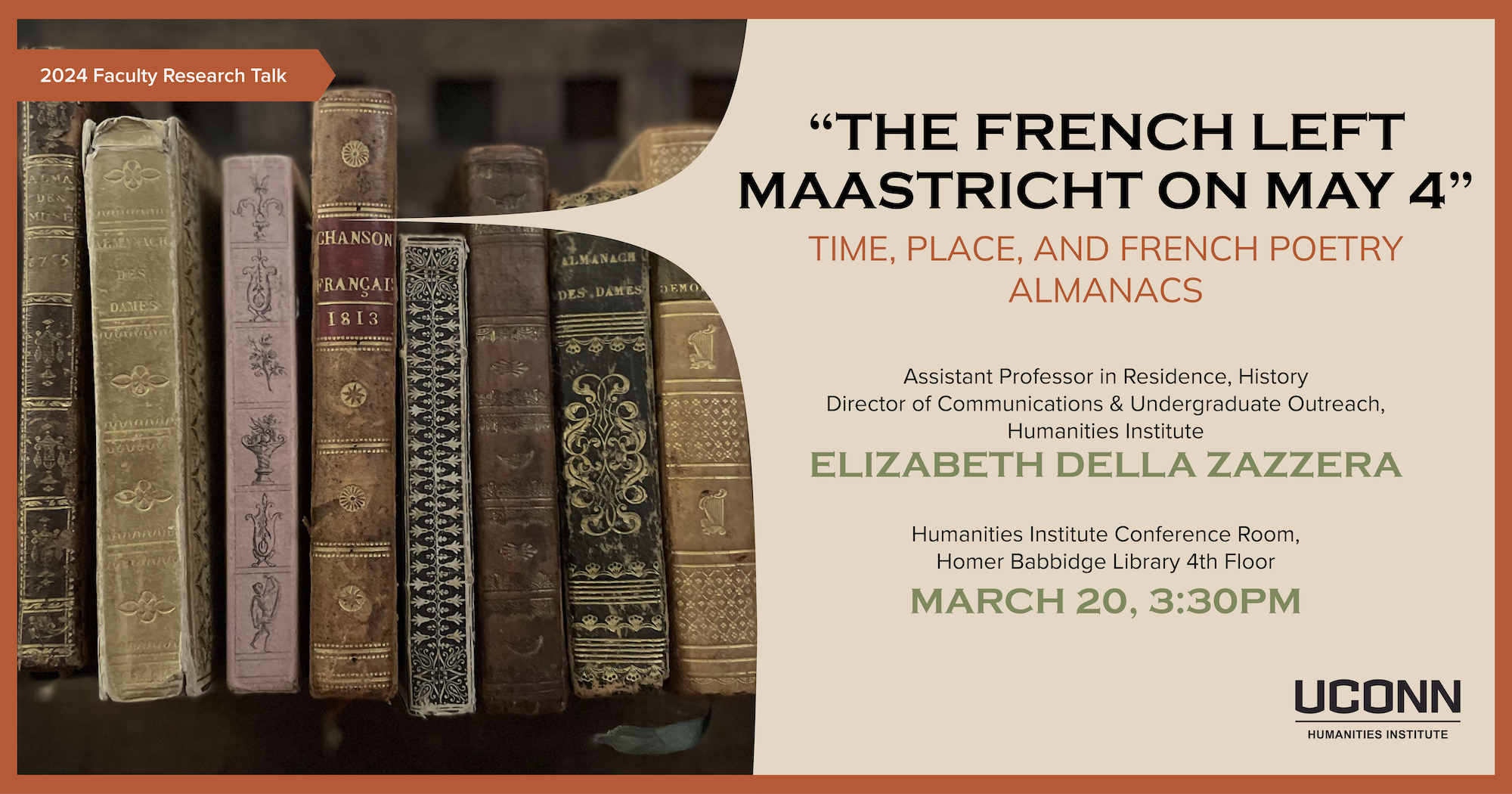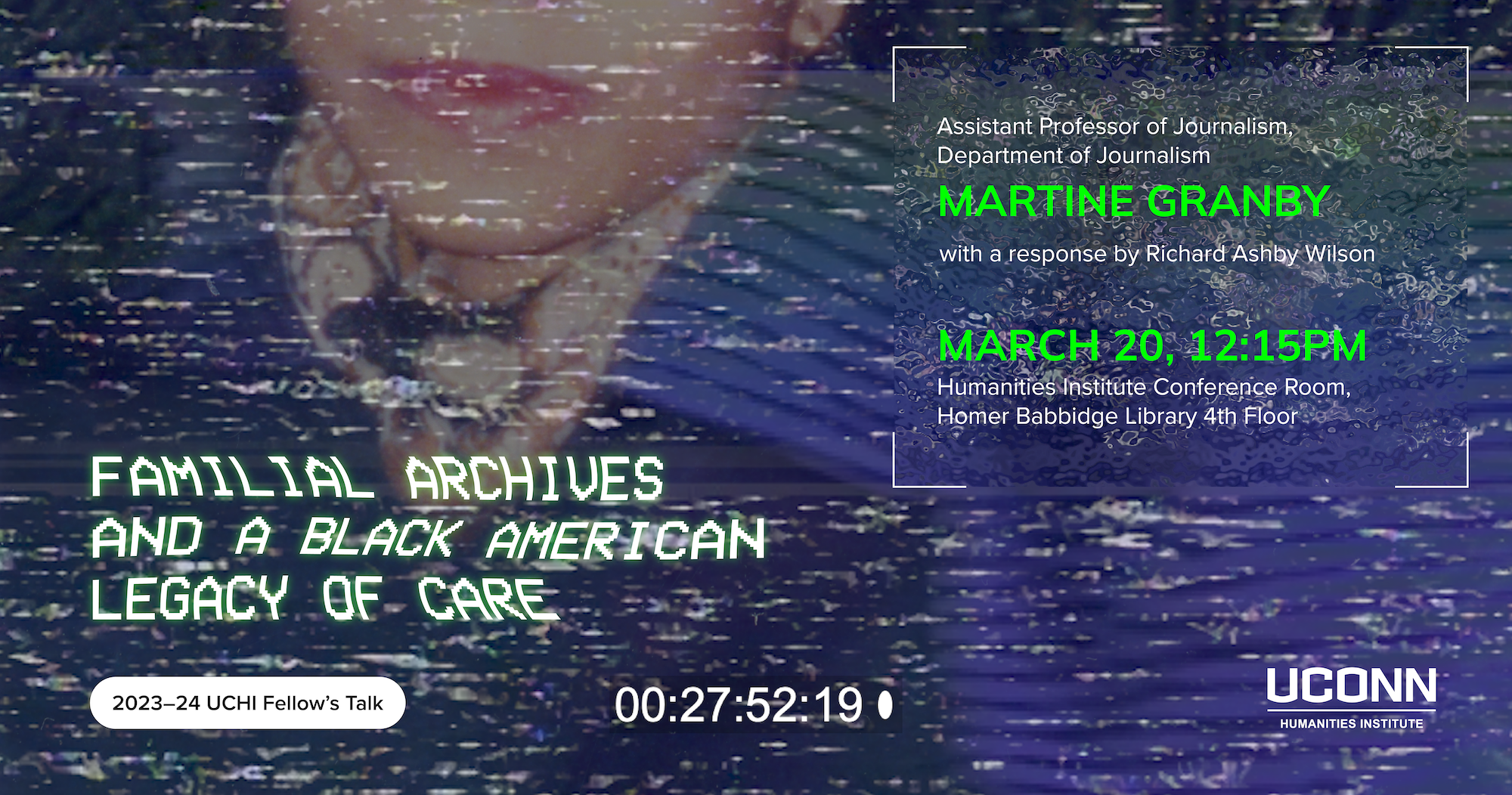A Site of Conscience: The ‘Haunting’ Legacy at the Mansfield Training School (UConn’s Depot Campus)
Dr. Brenda Brueggemann (English, American Studies, & WGSS, UConn)
Jess Gallagher (B.A, Honors English, UConn & M.A., Human Rights, Columbia University)
and the Mansfield Training School undergraduate research group: Madison Bigelow, English; Collin Lamontagne, Political Science; Ally LeMaster, English & Journalism; Paula Mock, Sociology & WGSS; Ashten Vassar, Human Rights, Psychology, American Studies
Wednesday April 17, 2024, 3:30pm, Humanities Institute Conference Room (HBL 4-209)
The presentation will be followed by a light reception and feature a poster exhibit on “Disability Institutionalization in the U.S.”
The event will also be livestreamed with ASL interpretation and CART.
The Mansfield Training School Memorial and Museum project explores the 133-year history of the Mansfield Training School (MTS) while also focusing on its ties to the University of Connecticut (UConn). Located less than 4 miles from UConn’s main campus, the former MTS, now called the UConn Depot Campus,” spans 350 acres but has been neglected for 30 years, resulting in boarded-up buildings covered in graffiti and ivy, vandalism, and frequent trespassing violations. Based on two years of archival and collaborative work thus far, this restorative inquiry and justice initiative aims to excavate the institutionalization of disabled lives and to educate community members about MTS’s history while promoting community and institutional accountability. The project poses the central question: What are the obligations of institutions and communities to address the legacies of disability institutionalization through mutual restorative inquiry? This interactive program will: offer highlights from the MTS timeline; share a few of the traveling exhibit poster boards under construction; explore some of the MTS-UConn cross-institutional connections; and feature brief snapshots from the UConn student research team’s satellite projects growing out of their work on the MTS project overall.
Brenda Jo Brueggemann is the Project Director for the Mansfield Training School Memorial & Museum @ UConn. She is a Professor of English, American Studies, and Women’s, Gender, Sexuality Studies (WGSS) at the University of Connecticut where she also serves as the Aetna Endowed Chair of Writing.
Jess Gallagher is the Project Co-Director for the Mansfield Training School Memorial & Museum @ UConn. Jess received their BA (Honors, English) at the University of Connecticut and MA in Human Rights at Columbia University. Jess intends to work as a disability oral historian.
Madison Bigelow is a senior at the University of Connecticut studying English with a concentration in Creative Writing. Madison hopes to pursue a career in legal advocacy and public interest with a specific focus on disability rights.
Paula Mock is a senior at UConn studying both Sociology & Women’s, Gender, and Sexuality Studies. Paula hopes to attend graduate school for a master’s degree in either social work or early childhood education.
Collin Lamontagne is a junior Political Science major at the University of Connecticut. His research interests center around politics, law, and policy.
Ally LeMaster is a senior English and journalism major at the University of Connecticut. Ally works as a legislative reporting intern at the Connecticut Mirror and is also currently editor-in-chief of Long River Review, UConn’s undergraduate-run literary magazine.
Ashten Vassar is a UConn senior majoring in Psychological Sciences and Human Rights with a minor in American Studies. Outside of the university, Ashten works with a grassroots coalition of institutional abuse survivors focusing on restoring agency through testimony and bringing public awareness.
Access note
If you require accommodation to attend this event, please contact us at uchi@uconn.edu or by phone (860) 486-9057. The event will include ASL interpretation, both in person and for the livestream. The livestream will also include computer assisted real-time transcription.
